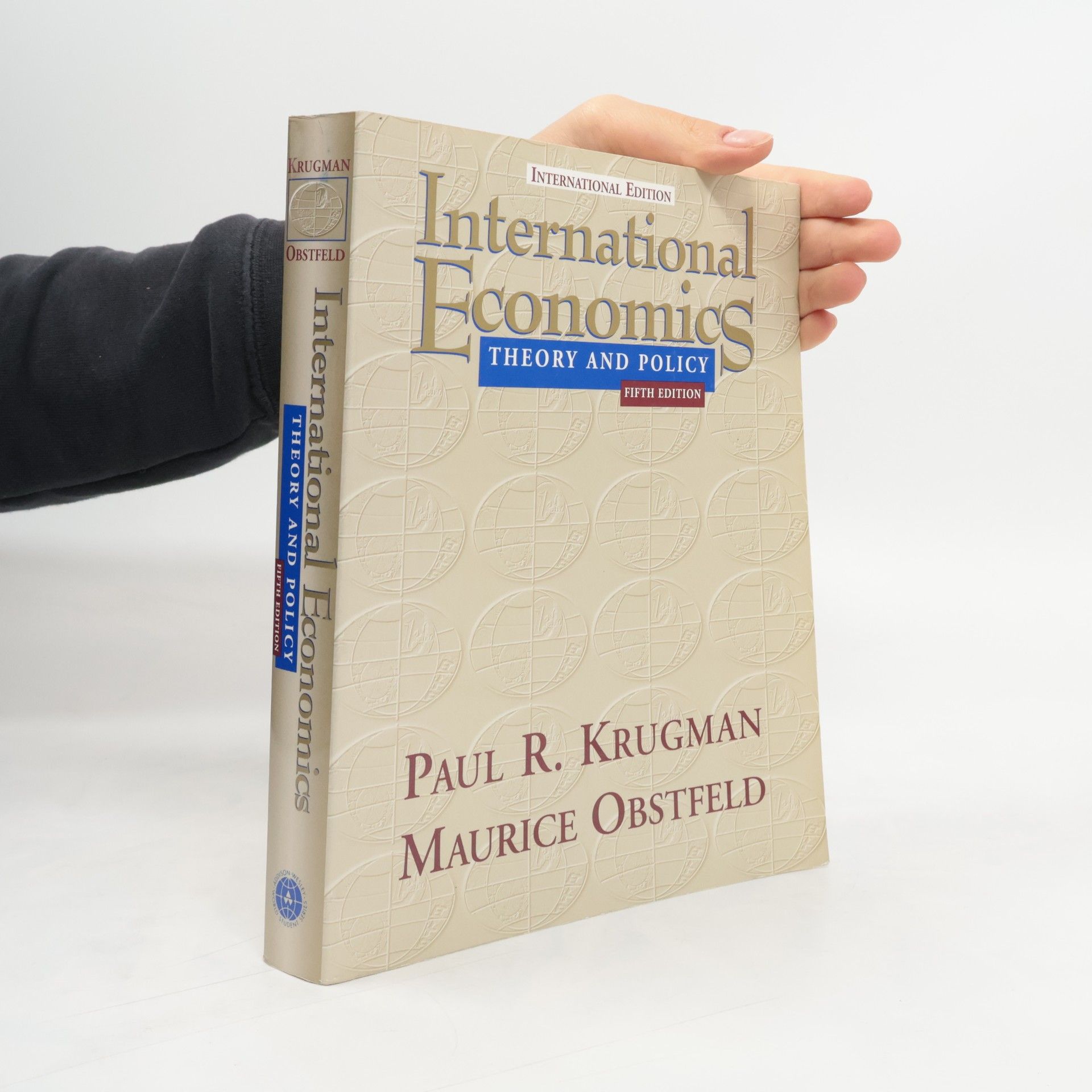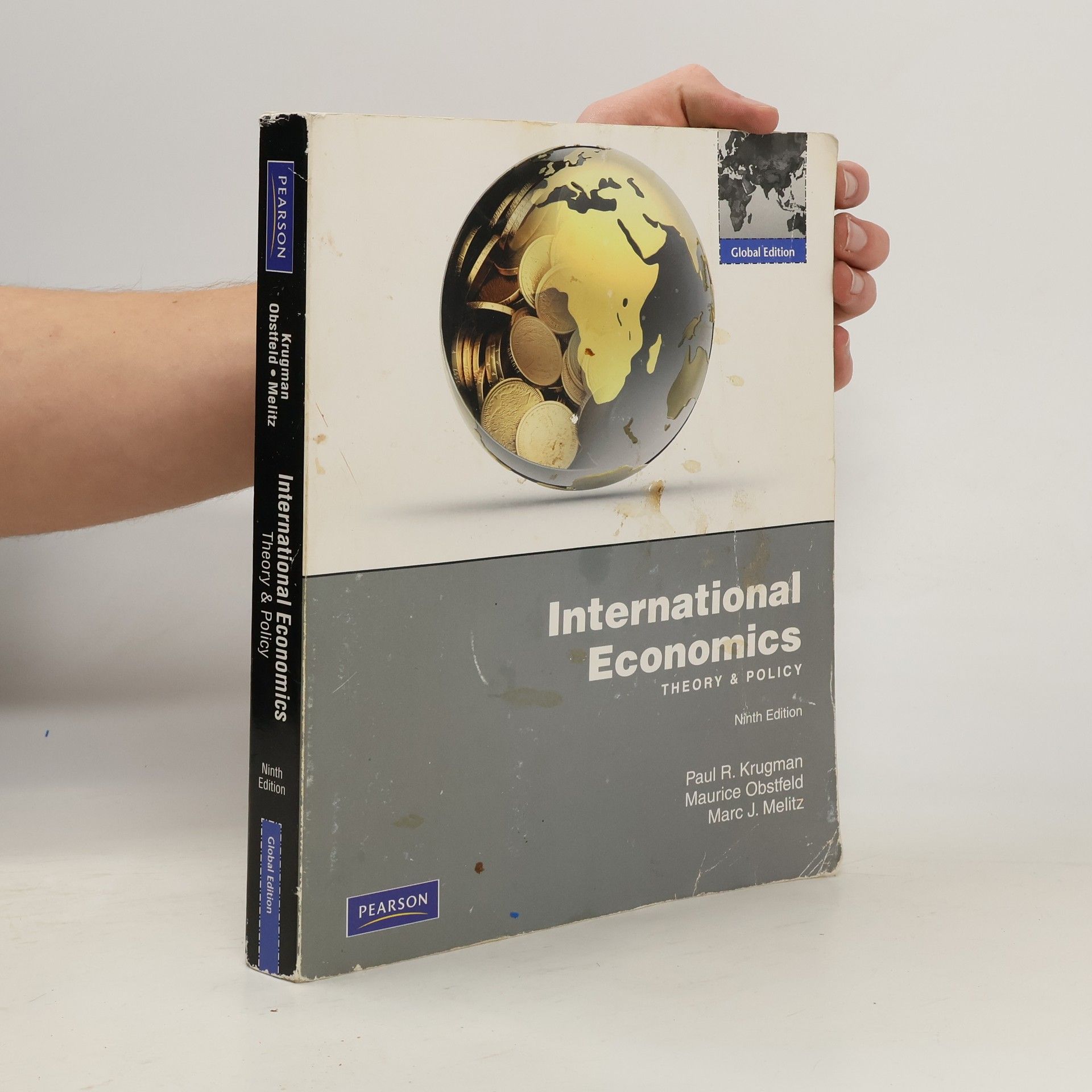Zum Buch: Der internationale Handel ist eine wichtige Komponente der Wirtschaftspolitik für das Wachstum und die Entwicklung von Staaten. Krugman/Obstfeld legen mit dieser 7. Auflage ihres Klassikers eine detaillierte, stets akkurate und aktuelle Analyse der Grundlagen des modernen zwischenstaatlichen Handels vor. Die Autoren stellen die wichtigsten theoretischen Handelsmodelle vor und unterziehen die Wirtschaftsentwicklung der letzten Jahre einer kritischen Prüfung. Gleichzeitig zeigen die Autoren anhand von vielen internationalen Beispielen und Fallstudien die gelungene oder gescheiterte Umsetzung dieser Theorien auf und bewerten die makroökonomischen Auswirkungen solcher Modelle. Krugman/Obstfeld betrachten alle Aspekte der Handels- und Währungspolitik stets durch die objektive Brille des Wirtschaftswissenschaftlers und vermeiden dadurch, politische Stellung zu beziehen. Dem Leser werden somit keine dogmatischen Ausführungen zugemutet, sondern er gewinnt einen unverstellten Einblick in die Möglichkeiten und Grenzen der internationalen Wirtschaftspolitik.
Maurice Obstfeld Bücher
Maurice Obstfeld ist ein renommierter Wirtschaftsprofessor, der für seine bedeutenden Beiträge zur internationalen Wirtschaft bekannt ist. Seine einflussreiche Arbeit zählt ihn zu den weltweit wirkungsvollsten Ökonomen. Seine Analysen bieten tiefe Einblicke in globale Wirtschaftsphänomene.






Global Capital Markets
- 374 Seiten
- 14 Lesestunden
This book explores the evolution of international capital mobility, tracing its development from the late nineteenth century to contemporary times. It examines key economic trends, policies, and events that have influenced the flow of capital across borders, highlighting the impact on global markets and economies. Through historical analysis, the work provides insights into the complexities of capital movement and its implications for economic stability and growth in different regions.
Foundations of International Macroeconomics is an innovative text that offers the first integrative modern treatment of the core issues in open economy macroeconomics and finance. With its clear and accessible style, it is suitable for first-year graduate macroeconomics courses as well as graduate courses in international macroeconomics and finance. Each chapter incorporates an extensive and eclectic array of empirical evidence. For the beginning student, these examples provide motivation and aid in understanding the practical value of the economic models developed. For advanced researchers, they highlight key insights and conundrums in the field. Topic coverage includes intertemporal consumption and investment theory, government spending and budget deficits, finance theory and asset pricing, the implications of (and problems inherent in) international capital market integration, growth, inflation and seignorage, policy credibility, real and nominal exchange rate determination, and many interesting special topics such as speculative attacks, target exchange rate zones, and parallels between immigration and capital mobility. Most main results are derived both for the small country and world economy cases. The first seven chapters cover models of the real economy, while the final three chapters incorporate the economy's monetary side, including an innovative approach to bridging the usual chasm between real and monetary models.
International Economics:Horizon Edition
- 736 Seiten
- 26 Lesestunden
336 pages Harpercollins College Div; 4th edition (March 1997) English
Nobel Prize winning economist Paul Krugman, renowned researcher Maurice Obstfeld, and new co-author Marc Melitz of Harvard University, continue to set the standard for International Economics courses with the text that remains the market leader in the U.S. and around the world. International Economics: Theory and Policy is a proven approach in which each half of the book leads with an intuitive introduction to theory and follows with self-contained chapters to cover key policy applications. Note: This is the standalone book if you want the book and Access Card for MyEconLab order the ISBN below: 013274483X / 9780132744836 International Economics: Theory and Policy, plus MyEconLab with Pearson Etext Student Access Code Card Package Package consists of: 0132146657 / 9780132146654 International 0132734524 / 9780132734523 MyEconLab with Pearson eText -- Access Card -- for International Economics
Economía internacional
Teoría y política del comercio internacional

